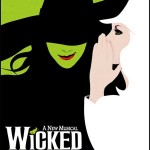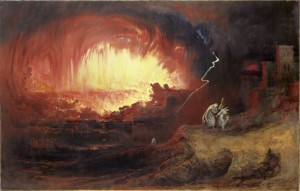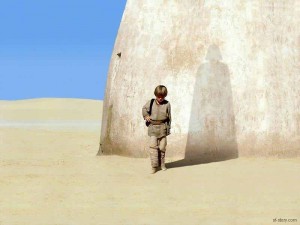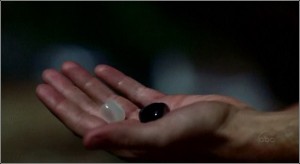Lost In Myth: “Lost” on The Life and Death of Black & White Characters
 When I think about the TV shows and movies I used to watch as a kid, it was always very easy to tell who was good and who was bad. Superman—good. Lex Luthor—bad. Mike Brady—good. The dude who faked whiplash to win a case against Carol—bad. The Scooby gang—good. The masked villains who would’ve gotten away with their dastardly schemes had it not been for those blasted kids—bad. Looking back at it now, I honestly think this black and white view of the world tainted my perception of people and experiences. Teachers and kids were either good or bad. A hot lunch choice was either good or bad. My day was either good or bad. And because I grew up thinking this way, much of this mindset is still with me, for better or for worse.
When I think about the TV shows and movies I used to watch as a kid, it was always very easy to tell who was good and who was bad. Superman—good. Lex Luthor—bad. Mike Brady—good. The dude who faked whiplash to win a case against Carol—bad. The Scooby gang—good. The masked villains who would’ve gotten away with their dastardly schemes had it not been for those blasted kids—bad. Looking back at it now, I honestly think this black and white view of the world tainted my perception of people and experiences. Teachers and kids were either good or bad. A hot lunch choice was either good or bad. My day was either good or bad. And because I grew up thinking this way, much of this mindset is still with me, for better or for worse.
I don’t believe the media is all to blame. In fact, our brains usually prefer when life is simple to categorize. While I’m not sure if it’s officially canon, DHARMA supposedly stands for the Department of Heuristics and Research on Material Applications. A “heuristic” is a rule of thumb that we use to take shortcuts in solving problems. It is helpful in that it can help us save time and brainpower in coming to conclusions. It is not as beneficial when it brings about rushed judgments, which are often incorrect, or at least, not fully developed. Maybe it’s because the world has gotten smaller, or more PC, but it seems to me that most people these days don’t see the world quite as black and white as they used to. While I’m sure the Internet and terms like “intellectually-challenged” have contributed to an extent, I feel that the biggest contributor towards seeing things in shades of gray has been our modern-day myths in the media.
When today’s audiences look back on dramas of the sixties and seventies, the characters often seem cartoonish in their portrayals of good and evil. A bad guy never needed a reason to be bad—that was just his character. And good guys never tired of being heroes, this was just who they were. By today’s standards, these characters seem boring and two-dimensional. This change in audience mindset has led to revealing new back-stories of these clichéd characters that help us understand why they may have acted the way they did.
 One of the most popular recent stories to do this points out our propensity to rush to judgment by offering a new perspective on a classically evil character. Wicked takes another look at the Wicked Witch from The Wizard of Oz and wonders, what if she really wasn’t so wicked after all? What if she was actually trying to do good but had been misunderstood and shunned by society. If a society itself is wicked, doesn’t that make the good guys bad from their point of view? Had Sodom and Gomorrah not been destroyed, wouldn’t their history have shown Abraham to have been wicked? And surely if the world had survived the Biblical flood, Noah would’ve been cast as a crazy villain who stole animals for his own personal gain. History is written by the victors, and of course, they always see themselves as “the good guys.”
One of the most popular recent stories to do this points out our propensity to rush to judgment by offering a new perspective on a classically evil character. Wicked takes another look at the Wicked Witch from The Wizard of Oz and wonders, what if she really wasn’t so wicked after all? What if she was actually trying to do good but had been misunderstood and shunned by society. If a society itself is wicked, doesn’t that make the good guys bad from their point of view? Had Sodom and Gomorrah not been destroyed, wouldn’t their history have shown Abraham to have been wicked? And surely if the world had survived the Biblical flood, Noah would’ve been cast as a crazy villain who stole animals for his own personal gain. History is written by the victors, and of course, they always see themselves as “the good guys.”
 While perhaps not as obvious as Wicked, the most recent Star Wars films also attempted to recast a famous villain in a new light. In episodes I-III, we learn that Darth Vader wasn’t always such a bad guy. That he had been manipulated into the dark side and, in many ways, was just a victim of circumstance. The Shrek films have also done a good job of showing ogres from a new perspective, as well as portraying fare maidens, princes and princesses as pompous, materialistic brats. Our mindset concerning characters has changed so much, you’d be hard-pressed to find any movie or TV drama anymore where the characters are so cut and dry. Are the protagonists good or bad on Prison Break? Who exactly are the heroes and who are villains on Heroes? And what about on Fringe? This brings us, to Lost.
While perhaps not as obvious as Wicked, the most recent Star Wars films also attempted to recast a famous villain in a new light. In episodes I-III, we learn that Darth Vader wasn’t always such a bad guy. That he had been manipulated into the dark side and, in many ways, was just a victim of circumstance. The Shrek films have also done a good job of showing ogres from a new perspective, as well as portraying fare maidens, princes and princesses as pompous, materialistic brats. Our mindset concerning characters has changed so much, you’d be hard-pressed to find any movie or TV drama anymore where the characters are so cut and dry. Are the protagonists good or bad on Prison Break? Who exactly are the heroes and who are villains on Heroes? And what about on Fringe? This brings us, to Lost.
As far as TV shows go, I think Lost has really gone out of its way to show us that there really is no such thing as good or bad. From the very beginning, flashbacks revealed a depth to characters that we wouldn’t have guessed. Sawyer was bad, until we saw what happened to him as a kid. But as a con man he was bad again, until we saw him walk away from a family who had a child that he didn’t want to con. He was bad for claiming to have hid Shannon’s asthma inhaler, until we realized that he was just a masochist who felt he deserved punishment for his sins. Punishment delivered by Sayid—good or bad? Is Kate good or bad? Jack? Desmond? The smoke monster? Its indefinable body almost seems to be a metaphor for its indefinable motives. What about Mr. Eko? Ana Lucia? Michael? Juliet? Danielle? In fact, it’s hard to tell which of Lost’s characters to root for at all. We find ourselves rooting for the ones who’s issues we relate to the most, but that’s only because they remind us of ourselves, and from our perspective, we are, of course, good.
Then there’s Ben and Widmore. Which, if either, of them is good or bad? Well, since both are responsible for the deaths of many people, both would be considered bad in the classic sense, but since we don’t know the big picture yet, it’s hard to say for sure. There’s no doubt that Ben considers himself to be the good guy, or at least, wants everyone to think that he’s the good guy. I think the point Lost tries to make is that we all think of ourselves as good. If you show a movie to a bunch of prisoners serving hard time, would they root for the hero or villain? I think most of them would root for the hero because we all see ourselves this way. Usually, we are more likely to relate to the character that has to struggle the most and overcome the odds, because we can relate. It’s for this reason that most of us find ourselves rooting for Locke. Is Locke any more of a good guy than Ben? Let’s see, he broke the law by working on a pot farm, he helped his crooked father secure stolen funds, he took it upon himself to foil every means of escape for the Losties, he’s spent a good portion of his time on sex phone lines, and he’s killed many a poor, defenseless boar.
After watching “The Life and Death of Jeremy Bentham,” the lines between good and evil seem more vague than ever, and I think this is the point. I know there are many fans who want Ben to be bad, and many who want Widmore to be. This is because we’ve been trained to simplify—it’s the heuristics of our mind pleading for  something we can understand on Lost. Personally, I don’t think we’re ever going to get a definitive answer, and this is really the whole point. Oh sure, once Lost concludes, there will be debate over who was good or bad, and perhaps Facebook pages devoted to one perspective or the other. I can see it now, “Widmore had the black stone at the end so that made him the bad guy!” or “Ben died selfishly in the volcano—a sacrifice to the gods to save the world so he is the hero!”
something we can understand on Lost. Personally, I don’t think we’re ever going to get a definitive answer, and this is really the whole point. Oh sure, once Lost concludes, there will be debate over who was good or bad, and perhaps Facebook pages devoted to one perspective or the other. I can see it now, “Widmore had the black stone at the end so that made him the bad guy!” or “Ben died selfishly in the volcano—a sacrifice to the gods to save the world so he is the hero!”
Say what you will, I believe the message of Lost is that there ultimately is no good or evil. No right or wrong. There is only that which can move us forward and that which does not; that which challenges us to grow and that which causes us to shrink back in fear; that which is based on sharing and that which is based on selfishness. In our illusionary, material world, where we tend to judge others by our own life experiences and values, it’s often difficult to see this. But I believe that one day, we will get a bigger picture of the ultimate reality. A reality where everything just is and it doesn’t come with a judgment. I also believe that Lost is preparing us for this time. A time when…well, according to Lost may not actually be “time” as we now currently think of it. In any case, whatever the future holds for us, as Lost fans who are now able to see the world from new perspectives that include time-shifts, constants, proxies, and yes, the blurring of what is good and evil, we’ll be ready.
Marc Oromaner is a New York City writer whose new book, The Myth of Lost offers a simple solution to Lost and how it provides hidden insight into the mysteries of life. He can be contacted in the discussion section of The Myth of Lost Facebook page.
The Myth of Lost is available on Amazon and barnesandnoble.com.



2 Responses Leave a comment
Knlwgedoe wants to be free, just like these articles!
/ Marcos Kitano Matsunaga foi assassinado no dia 19 de maio de 2012. No dia 24 de maio de 2012 a empresa de produtos alimentÃcios norte-americana General Mills acertou a compra da fabricante brasileira de alimentos Yoki por cerca de R$ 1,75 bilhão. #comofas?abs,Fabio Lopez